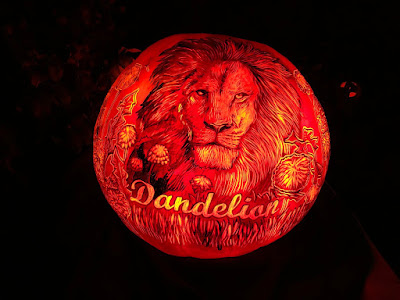
Just when you get comfortable with something, it changes. That's life. I had wrapped my mind and my tongue around LGBTQ—for "Lesbian, Gay, Bisexual, Transgender and Queer (or Questioning)"—when along comes this new designation: LGBTQIA, the last two letters standing for Intersex and Asexual, which I actually knew, perhaps thanks to osmosis, though not with enough confidence to do away with a quick check online. Plus I was challenged to parse one from the other.
"Intersex" is a more physical term.
"Intersex is a general term used for a variety of conditions in which a person is born with a reproductive or sexual anatomy that doesn’t seem to fit the typical definitions of female or male," says the Intersex Society of North America, which should know. "For example, a person might be born appearing to be female on the outside, but having mostly male-typical anatomy on the inside."
There's quite a bit more, and if you want the details, you can find them here.
"Asexual" is lack of sexual attraction to others. I might volunteer that this seems a sad way to go through life, but then that is exactly the kind of judgment that spurs churches to put out signs behind little red picket fences. Though I leap to point out that I'm not at all against including them in whatever I was doing: beach parties, book clubs, bowling leagues, whatever. (Dances, well, they'd kind of just sit there, right?) I think people get confused when it comes to differing between inclusion and acceptance. I'll never accept anti-vaxxers, but they can ride the bus if they've got $2.50. Were I a baker working in a public establishment, I would feel obligated to bake a cake commemorating the 25th anniversary of an asexual couple not being drawn to each other. Tolerance doesn't mean you have to like everything; I hate egg salad, but I'm not trying to stop anybody from eating it, so long as I don't have to join in. Ditto for asexuality.
Maybe I'm showing my age, but my primary concern regarding this topic is fear of having to adjust to an-ever growing acronym of acceptance. Before you know it, we'll be adding handicapped persons and immigrants and those who go to furry conventions—LBGTQIAHPITWGTFC—and the term will start to look like the name of a village in Wales.
Yes, this is serious stuff, with the U.S. Supreme Court at this moment deciding if you can fire anybody in the quintogrammaton (bad pun, a play on one of my favorite obscure words, tetragrammaton, or YHWH, the unutterable Hebrew name of God). It's too easy to be light-hearted when the topic is the rights of others. Maybe because those who drape themselves in the mantle of religious piety, using their faith as a club to beat down others they've never met, I just can't align my mouth into the same grim set as theirs in the name of humanity's glorious spectrum of possibility.
A little irreverence might even help this brave new world go down a little more easily with the general population, which can be good at heart and well intentioned and still sometimes feel like a high hurdler going over a never-ending string of hurdles.
Maybe we could find a general term. Repurpose "weird" the way a spectrum of homosexuality rescued "queer" from being a slur. "We welcome the weird" is a sign I'd put on my front lawn, though my neighbors might mutter with a significant look in our home's direction that they've been doing that for years.
Good for them. Including people is broadening. Being asexual has its advantages, I suppose. None of those sticky situations which we attracted-to-folks types stumble into during the course of our lives. No need to hurriedly gather your clothing and fling yourself naked out the window when the hubby unexpectedly arrives home from his business trip. Not that I've ever found myself in a situation like that, mind you, though I'm sure if I put my mind to it I could recall a moment or two better left sealed in the vault of memory. I hope you accept that, because you kinda have to.













